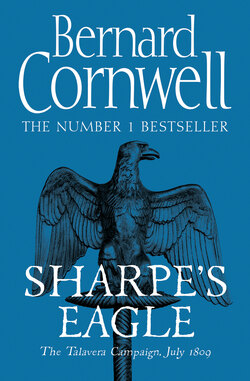Читать книгу Sharpe’s Eagle - Bernard Cornwell - Страница 10
PREFACE
ОглавлениеIn 1809 the British army was divided into Regiments, as today, but most Regiments were described by numbers not by names; thus, for instance, the Bedfordshire Regiment was properly called the 14th, the Connaught Rangers the 88th and so on. The soldiers themselves preferred the names but had to wait until 1881 for their official adoption. I have deliberately not given the South Essex, a fictional Regiment, any number.
A Regiment was an administrative unit; the basic fighting unit was the Battalion. Most Regiments consisted of at least two Battalions but a few, like the imaginary South Essex, were small single-Battalion Regiments. That is why, in Sharpe’s Eagle, the two words are used interchangeably of the South Essex. On paper a Battalion was supposed to have about a thousand men but disease and casualties, plus the shortage of recruits, meant that Battalions often went into battle with only five or six hundred troops.
All Battalions were divided into ten companies. Two of these, the Light Company and the Grenadier Company, were the elite of the Battalion and the Light Companies, in particular, were so useful that whole Regiments of Light troops, like the 95th Rifles, were being raised or expanded.
A Battalion was usually commanded by a Lieutenant Colonel, with two Majors, ten Captains, and below them the Lieutenants and Ensigns. None of these officers would have received any formal training; that was reserved for officers of the Engineers and the Artillery. About one officer in twenty was promoted from the ranks. Normal promotion was by seniority rather than merit but a rich man, as long as he had served a minimum period in his rank, could buy his next promotion and thus jump the queue. This system of purchase could lead to very unfair promotions but it is worth remembering that without it Britain’s most successful soldier, Sir Arthur Wellesley, later the Duke of Wellington, would never have risen to high rank early enough in his career to form the most brilliant army Britain has ever possessed; the army in which Richard Sharpe fought the French through Portugal, Spain, and into France between 1808 and 1814.
